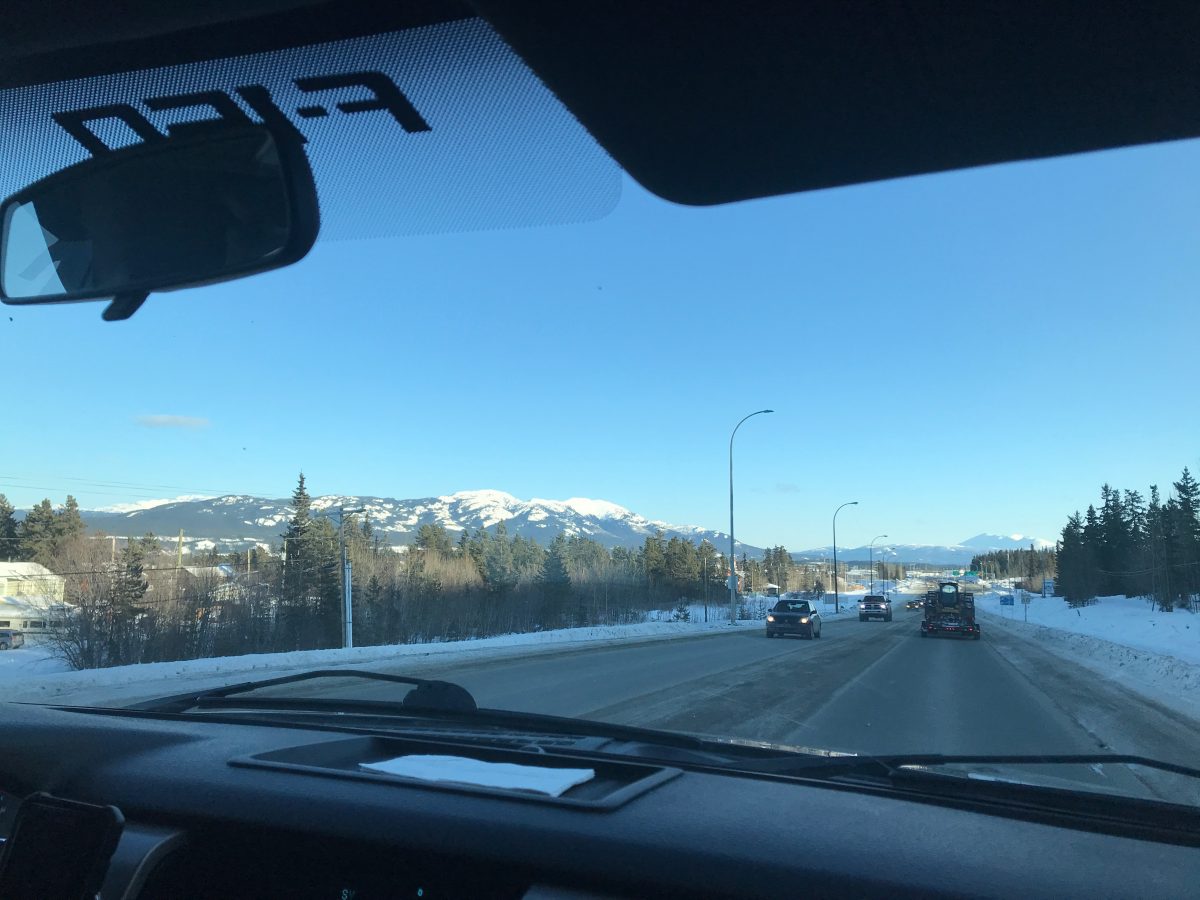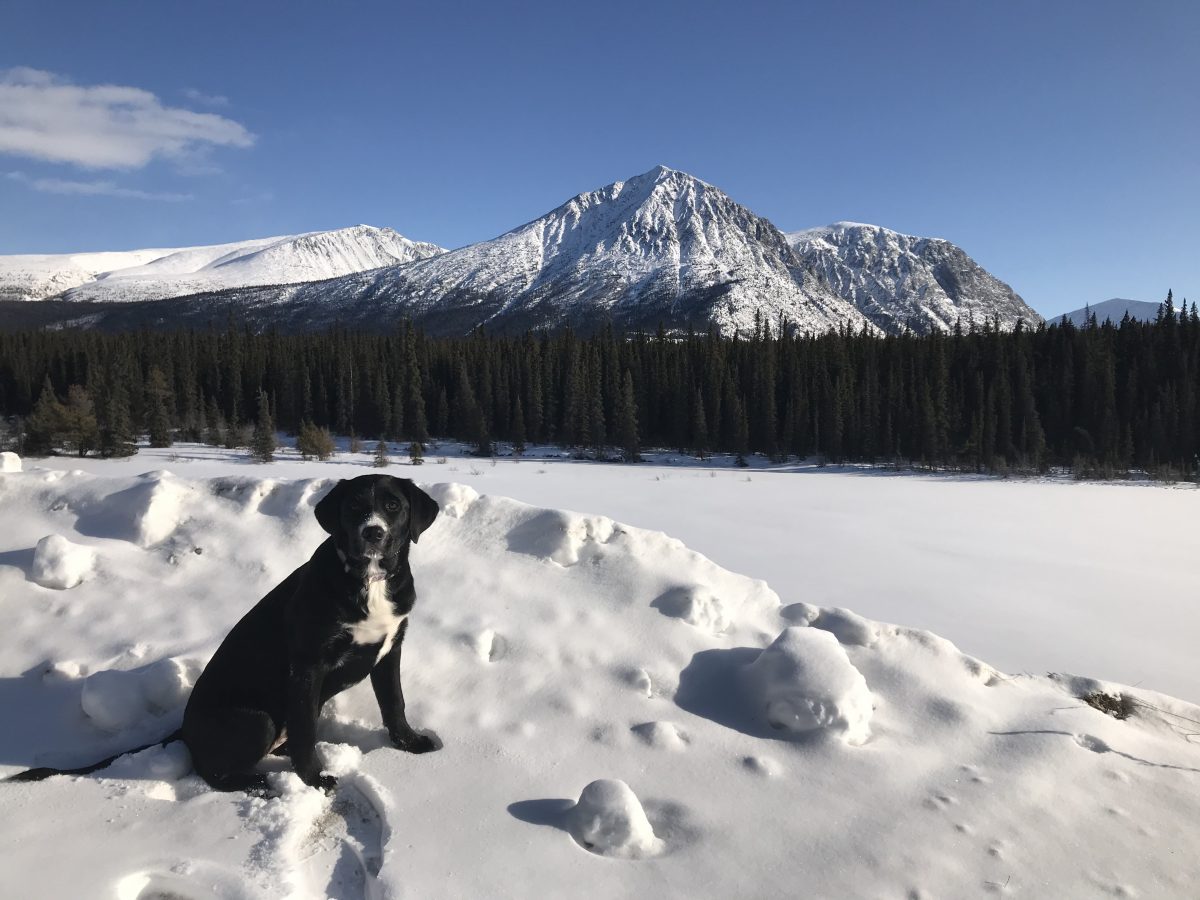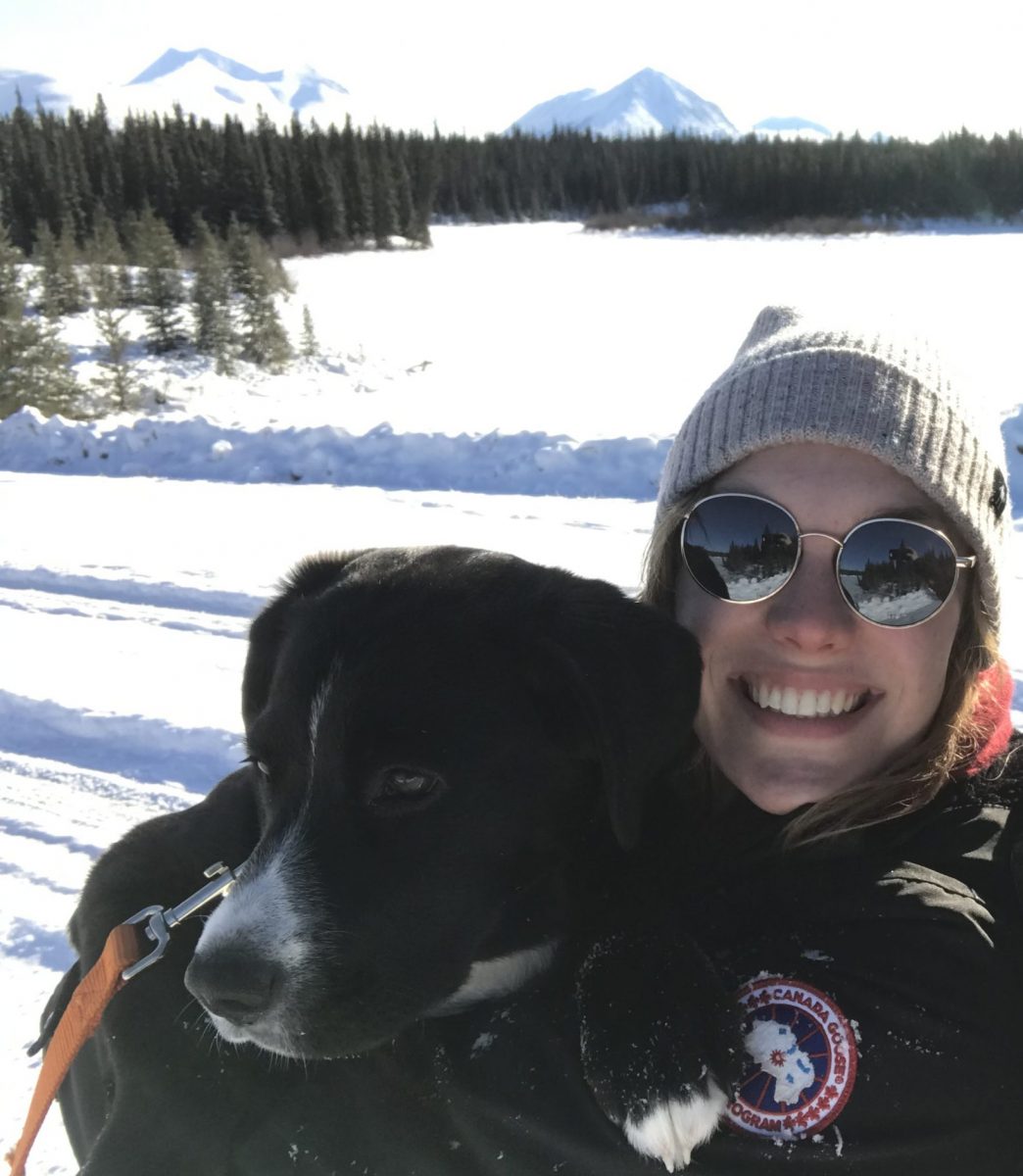
Georgie was crying. Her dad wanted her to reconsider. “I knew I was in this thing now though,” she says. “I had to give it my best shot.” She had just moved to a place where she had no one.
It was September and she had just finished her degree in the spring. She arrived at her new home in Williams Lake, British Columbia that afternoon. It is a small resource town in the province’s south-central interior. She is a brassy haired 23-year-old girl with a big laugh. On this day, the storefronts of William’s Lake were already closed for the evening. The downtown looked dreary. The building’s windows were covered with heavy guards at night, to avoid constant break-ins. The breaks-ins are often caused by gang violence.
Georgie describes herself as having been an “affluent, white girl from southern Ontario” when she arrived. She wore Ray Bans and attended music festivals. Although she’d always cared about social issues, she was worried she couldn’t understand true hardship. She had no idea what it was like to live in a racially divided, blue-collar northern town.
On that September day, she admits, it was gloomier than usual. As she and her father drove into the small semi-remote community, there was slick brown mud instead of paved roads and their car was sliding from side to side. It was intimidating, almost ominous.
“It freaks you out when your parents [lack confidence] in what you’re doing. I cried, I fucking cried,” she says.
It was now her job to steward a large traditional territory as a First Nations representative. She would be expected to regularly represent the Nation’s interests with resource extraction companies, other First Nations and the BC government. Over the next year, she would work with people that had faced hardships that she couldn’t imagine.
The Stswecem’c Xgat’tem Nation (the people Georgie works with) and most of the First Nations communities in the area still deal with the effects of colonization. The people who live in the Nations and cities around there suffer from chronic unemployment caused by changes in the economy. The area’s resource-based economy is volatile and subject to sudden job losses. The Nation also experiences health and addiction problems. The trauma from colonization and the residential school system also remains ever present.
Georgie was overwhelmed. She often reflects on that first day she visited Dog Creek.
Still, since she arrived, she has noticed more of the nuanced beauty.
“There’s a lot of archeology all over. Pit homes, villages and the remains of villages,” she says.
Pit homes are the remains of traditional Secwpemc winter houses. They are sometimes found in clusters that indicate large villages from the past. They are built into hills and the ground. They dot Dog Creek and the rest of the Fraser River Valley, including Williams Lake, the city of ten thousand that Georgie lives in and commutes from each day. There is wildlife everywhere. Deer wander across highways as confidently as if humans had never intruded into their universe. Scientific teams observe grizzly bears and tag them for monitoring and research.
Hippies, cowboys, scientists and miners converge in the small towns and cities in the region. The experience can be fascinating and exhilarating. Volcanic rock lines the sandy riverbed. Overgrown hills of green grasslands give way to rolling mountains in the distance.

Georgie has made friends at work and found love at times in this new place. She has gotten to know the communities she works in. But even as she begins to enjoy the people and their beautiful land, she is reminded of the unique challenges they face.
“Before I moved here, Williams Lake was rated by Maclean’s magazine as the fourth worst place in Canada to live. The rates of sexual assault and robbery were high in comparison to the rest of the country. The impact that hundreds of years of systemic racism has had on the local First Nations is also horrifying. The history makes it even harder to deal with other obstacles,” Georgie says.
There is a lot of racism in Williams Lake. This happens a lot in isolated, resource-based cities. Georgie finds it especially hard here. Indigenous people are blamed for the town’s crime and its social problems, even though they are not strictly the source. A friend of hers was ordering food at a local Tim Hortons and heard some “nice, old men” ranking their preferences for Prime Minister in the upcoming election. Their list went: Andrew Scheer, Maxime Bernier and, failing them, a member of the KKK.
People often attach stereotypes to Indigenous populations, thinking them lazy and dependent on “handouts.”
“The Wild West is not dead out here,” Georgie says. Many of the negative parts of the Wild West aren’t either.
There are problems in the organization that Georgie works for. There was a man responsible for raising a family of goats and he left without telling anyone. Many of the animals starved or died of sickness. More importantly though, there are also obstacles between the First Nation and its goals; not enough money, not enough employees.
“It takes a lot of dedicated people working for a long time to build self-governance. It takes time to establish healthcare and education. To get authority over your Nation’s children and its land.”
Georgie misses her family, even as she keeps in touch with them via technology. She misses her friends. Her immersion into a new world, a new culture, has been disorienting. It has also challenged her world view.
The Nation Georgie works for is in the process of becoming a treaty Nation with three other neighbouring First Nations communities. This decision could give the Nation’s people more autonomy. But it faces criticism from the outside world, namely other members of the Greater Secwepemc Nation.
“I love this community, I love the current leadership, it’s amazing what they have done for the community,” she says.
At the same time, Georgie realizes the irony of handing a management position in a First Nation to a “privileged white girl from Southern Ontario.”
“I love Indigenous land management principles; I think they are extremely complimentary to the biodiversity of this country. More of Indigenous culture should be brought into Canadian society. Many community members inspire me and remind me of who and what I am working for. It’s amazing to see someone overcoming a lot of the shit that the world has thrown at them. The history, the systemic racism, the gross injustice. Their response is amazing to me. It makes me hopeful. Human beings can be so resilient,” she says.
Georgie loves her job, but it comes with complexities and difficulties. She realizes that, in the end, the story is not really about her; she is just a small part of the work that is being done.

“Hopefully we are building capacity. Hopefully someday this job will be filled by a member of the community. Because it’s a community that cares,” she says.
